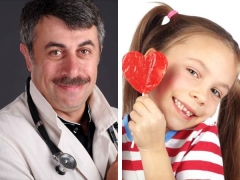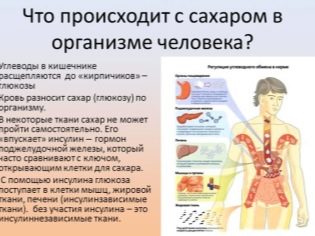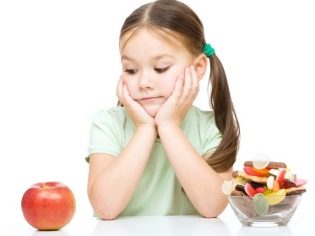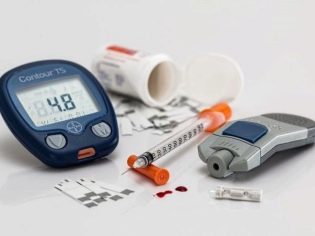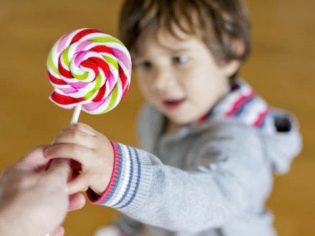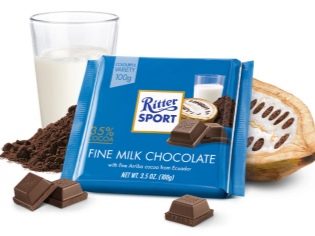Dr. Komarovsky about chocolate and other sweets
All children love sweets. This fact is not in doubt. Doubts from thinking and responsible parents raises the question of whether sweetness will harm the child. When chocolate and other delicacies can be considered useful, and when they harm the baby’s health, the famous pediatrician and author of books and articles says Evgeny Komarovsky.
Why do kids love sweets?
Childlike taste for chocolates, sweets, cakes and cookies is given by sugar, which is a soluble carbohydrate. Carbohydrates are different: monosaccharides - glucose, fructose found in sweet fruits and disaccharides - lactose and sucrose itself (the very sugar about which parents are so worried).
Any carbohydrate, entering the human body, after a long chain of chemical reactions ultimately turns into a monosaccharide - into glucose. The child is actively growing, moving a lot, he needs more energy than an adult. And glucose is the source of energy. In addition, the body needs glucose to synthesize enzymes and hormones. The child after the candy feels more cheerful and more cheerful, his mood rises and it is not just like that. He gets extra energy, after all, he gets pleasure from his favorite taste, and pleasure is the production of endorphins, the so-called happiness hormones.
However, parents should understand that carbohydrates are contained not only in sweets, but also in cereals, fruits, vegetables, meat, milk. Therefore, the question of where the baby will receive energy from is not so straightforward. Parents know that a plate of oatmeal is more useful than candy, but the pleasure of porridge will not be so.
So moms and dads have to “balance” between considerations of common sense and the natural desire to give pleasure to the child, to please him.
Possible harm
Lack of carbohydrates harms the child no less than their excess. If you completely deprive the child of carbohydrates, then his metabolism will change dramatically. There may be problems with the synthesis of enzymes and hormones. The energy supply of a child is much lower than that of an adult, and the energy for growth, activity, and even brain activity requires much more.
Excess consumption of sweets, and, accordingly, carbohydrates, leads to an increase in adipose tissue, and childhood obesity can begin. If the metabolism changes in the direction of excess carbohydrates, then diabetes can develop.
Despite the fact that this opinion has been supported by physicians for decades, there is no convincing evidence of the relationship between sugar and diabetes.
The most real harm from sweets for a child’s body is potential caries. The microbes that inhabit the mouth, are very fond of glucose, are activated and begin to destroy the enamel of the teeth. The child’s intestines also do not remain indifferent - an abundance of sweets causes fermentation processes in it, and this increases the risk of an allergic reaction.
Despite the frightening statements of numerous experts in the field of nutrition and children's health, says Yevgeny Komarovsky, the harm from sweet for children is greatly exaggerated. The pancreas, which responds to insulin production and carbohydrate metabolism, is much healthier and stronger in children than the pancreas of adults.Therefore, the abundance of sweet is more dangerous for moms and dads than for their offspring, although of course you should not abuse it.
How to give a child a sweet?
It is theoretically possible to wean from sweet, says Komarovsky, but not necessary. Indeed, in the life of a child there are enough situations when the need for energy of a growing organism increases significantly. It may be start of kindergarten, and the exam period at school, and responsible competitions, and preparation for a creative competition. During this period, the child spends energy at a rapid pace. Candy, cake, which moms and dads will buy at this moment and give to their child, will not be harmed to the detriment.
In the period of illness, when the baby's temperature rises, energy costs also grow, and therefore a spoonful of jam, a piece of chocolate is also a kind of medicine. But if the child predominantly leads a home life, does not play sports, he spends his free time at computer or TV, sweets it is better to limit as much as carbohydrates and low-active lifestyle are incompatible, says Komarovsky.
A few words about chocolate
Proteins that are contained in cocoa beans, from which chocolate is made, often cause allergies in children. But the older the child, the less likely the allergic reaction. Yevgeny Komarovsky does not recommend giving chocolate to children under 2 years old. And after this age, you can begin to enter the chocolate in the diet in small pieces, observing the measure. The maximum amount of chocolate for a child of 3 years is not more than 25 grams.
For children, you should not choose bitter varieties of chocolate, in which the cocoa content is higher, it is better to give preference to milk chocolate. Both cocoa drink and a piece of chocolate are high-calorie foods, and therefore they should be given from the standpoint of common sense and in accordance with the principle of energy consumption - if the child has a load (physical and brain), then you can be pampered with these delicacies if there is no load , it is better to give compote, juice, jelly.
Chocolate also contributes to the production of "hormones of joy", in small quantities, it does not harm.
In the next video, Dr. Komarovsky answers all the parents' questions about sweets.
